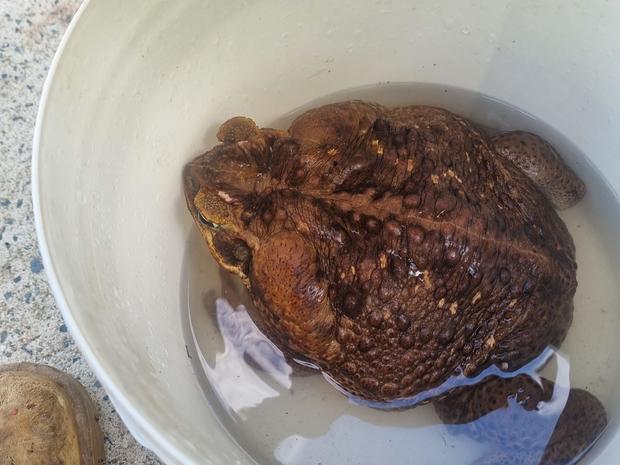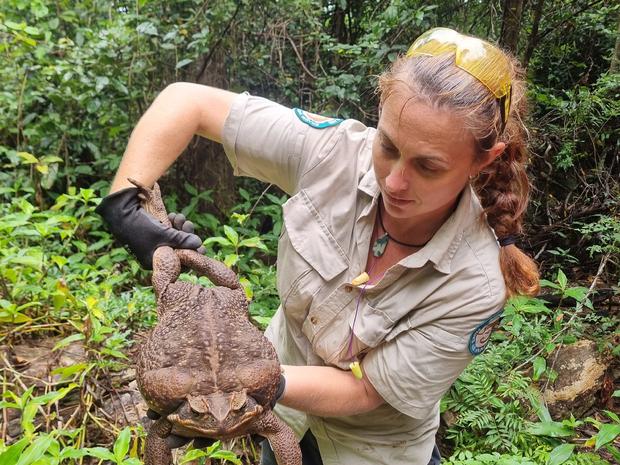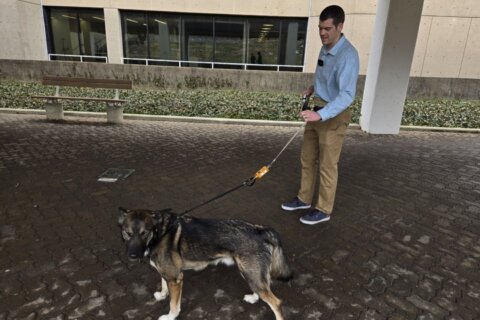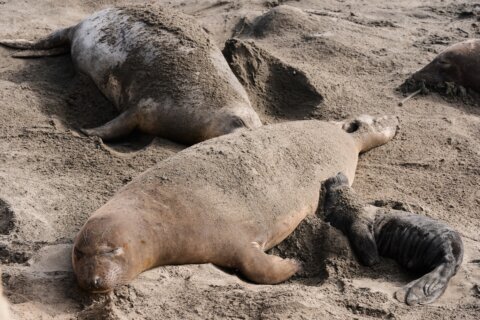
The biggest toad in history may have just been discovered at a national park in Queensland, Australia. It’s so massive that when a park ranger discovered it, all she could do was gasp at its size.
The enormous amphibian has been aptly named “Toadzilla.”
The Queensland Government’s Department of Environment and Science unveiled the toad’s discovery on Friday, saying that she was found near Airlie Beach in Conway National Park. According to the department, park ranger Kylee Gray was in a vehicle when she saw a snake slithering across the path ahead and had to stop. When she got out of the vehicle and looked down, the department said, “she gasped” – it was a massive cane toad.
“I reached down and grabbed the cane toad and couldn’t believe how big and heavy it was,” she said in a news release. “We dubbed it Toadzilla, and quickly put it into a container so we could remove it from the wild.”
According to National Geographic, cane toads usually only grow to be about 3 pounds. Toadzilla, however, was found to weigh almost double that and is about the size of a human newborn baby.

The Queensland government said that when they returned to their offices and weighed Toadzilla, it weighed in at 2.7 kilograms, or just under 6 pounds. They believe it’s a female toad due to her size.
“A cane toad that size will eat anything it can fit into its mouth, and that includes insects, reptiles and small mammals,” Gray said.
Toadzilla may be the biggest toad on record. According to Guinness World Records, the largest toad ever record was in March 1991 – another cane toad named Prinsen. That toad lived in Sweden and weighed in at 2.64 kilograms, or about 5 pounds and 13 ounces. He was over a foot long from snout to vent.
But if she does hit the record, the massive toad won’t be able to take part in the celebration. Because of the environmental damage the species can cause, the Queensland Government tweeted that she had to be euthanized.
Cane toads are thought to be one of the worst invasive species in the world, according to National Geographic. About 2,400 of the toads were released into north Queensland in 1935 in hopes of helping control cane beetle populations, but because the toad doesn’t have any natural predators in the region and can lay between 8,000 and 30,000 eggs almost any time of year, they spread quickly.
The amphibians are known for their toxicity, and according to National Geographic they secrete a “milky poison” called bufotoxin that can cause cardiac arrest as well as psychedelic effects.
“Native animals that eat cane toads die almost instantly when they bite into them,” an informational sheet from the University of Western Australia in 2012 says, including some snakes and crocodiles.







